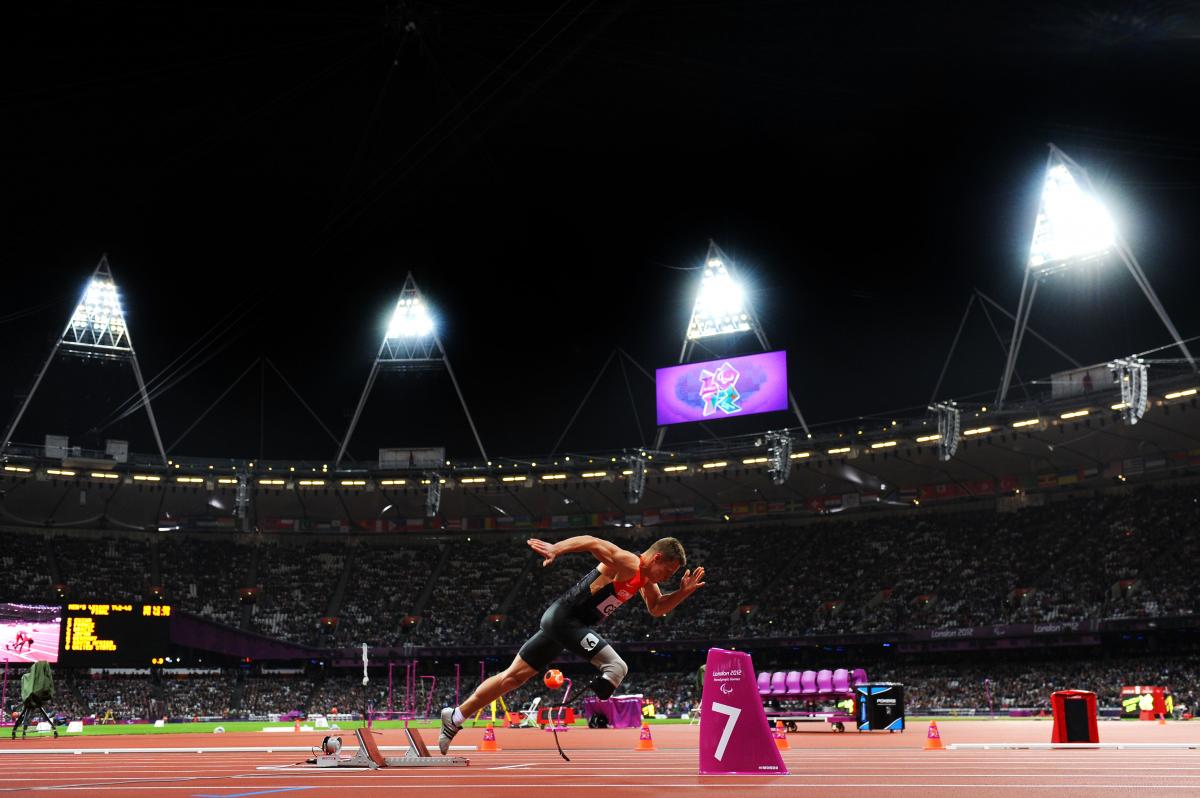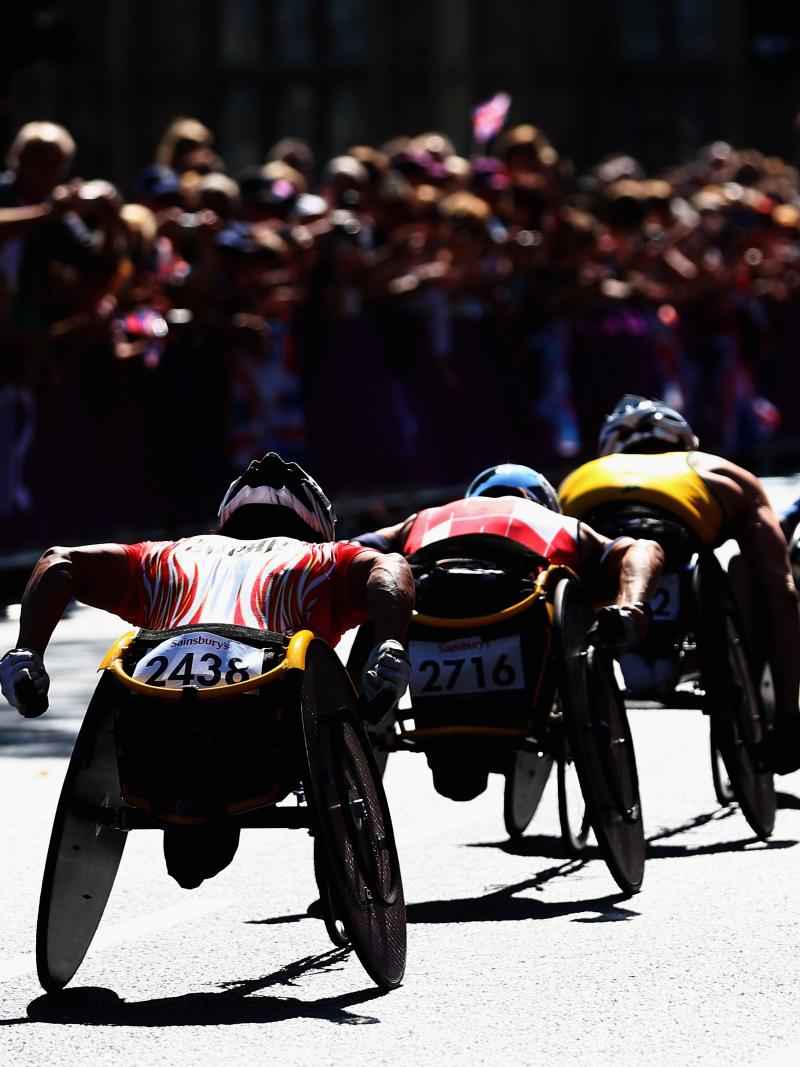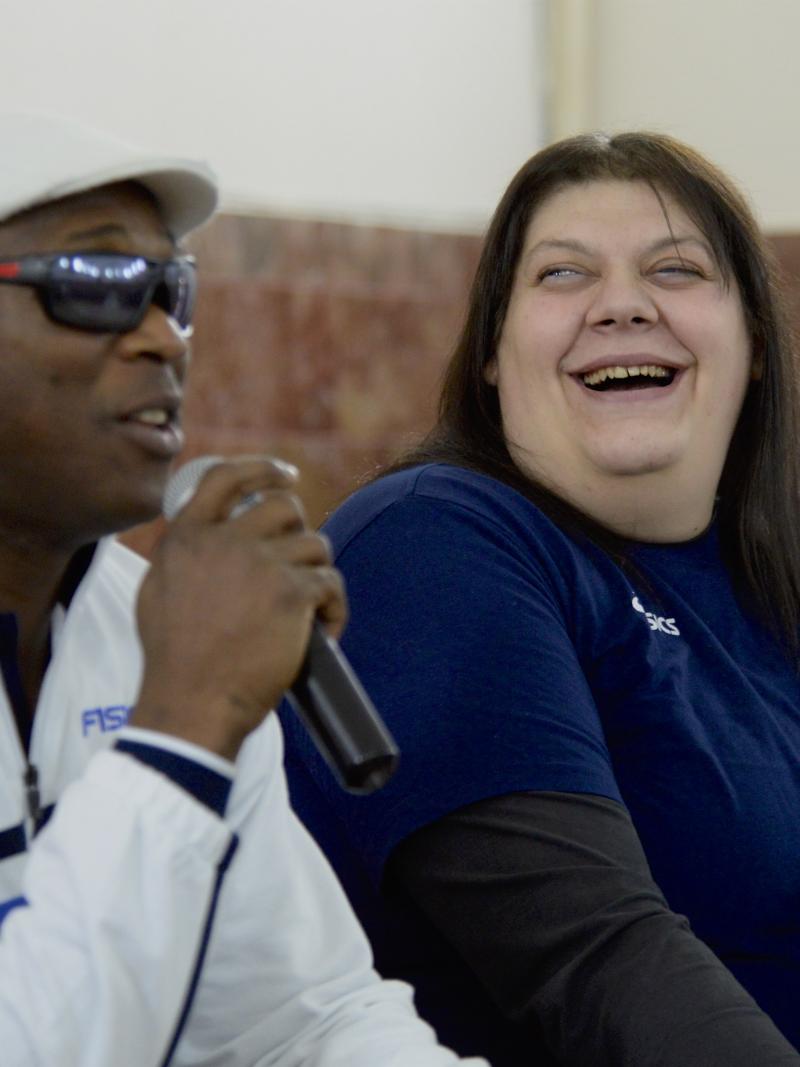What Makes the Perfect…?
In a new series we speak to the world’s best athletes for the inside track on what makes them amongst the ones to beat for Rio 2016. 14 Feb 2016
Markus Rehm of Germany starts in the men's 4x100m relay T42/T46 final on day 7 of the London 2012 Paralympic Games.
“It is complex, and actually when you watch it you just think you run down the track as quick as you can, but the thing is you’ve got to be strong and powerful enough to hit these positions where you’re driving and keeping low, but you’ve also got to be efficient in your technique.”
Every athlete strives to be better – to run faster, jump higher, or throw further. But what does it take to be the best?
In this new monthly series we look at a variety of key components of para-athletics and find out from some of the world’s best athletes and coaches just what it takes to reach the top.
We kick off this week with our first topic:
What Makes the Perfect…Start?
For sprinters around the world, achieving the perfect start is critical to a winning performance. Unlike longer-distance races where tactics may play a part, sprint races such as the 100m and 200m are all about an individual’s performance. You stay in your lane; it’s you against the clock.
But that’s not to say a sprint race is easy – in fact, there’s far more to it than meets the eye, as Ireland’s Jason Smyth, the multiple world and Paralympic champion and the man acknowledged as the world’s fastest Paralympian points out.
“It is complex, and actually when you watch it you just think you run down the track as quick as you can, but the thing is you’ve got to be strong and powerful enough to hit these positions where you’re driving and keeping low, but you’ve also got to be efficient in your technique,” he explains.
Indeed for Smyth, who holds both the 100m and 200m T13 world records, efficiency is paramount.
“Number one, you’ve got to react fast. Then I would say it’s a combination of being able to apply force and generate power - but efficiently.
“The more efficient you are, the more power you generate – and the further you can go down the track with less effort.
“One of the biggest things I’ve learnt is about being as efficient as possible. You can be more efficient and apply less effort than someone who is not being efficient, but yet you are going to go further.
“The more efficient you are, the quicker you are going to run - it’s that simple. If you are not efficient then you are losing time, you are losing energy.”
The 28-year-old speaks from experience – he has been at the top of his sport for over 10 years. Smyth has never lost a para-athletics race; he’s never jumped the gun or been penalised for a false start either.
That ability to remain focused and wait for the ‘‘b’ of the bang’ is another essential component of the perfect start. Just fractions of a second make the difference between success and failure, so what does it take?
“A lot of that is down to mentality, and keeping focused and disciplined,” says Smyth.
“You’re listening and you’re aware. You’re ready to go, but you’re not going until you hear the noise. People who start to jump and get jittery are not focused. Mental strength is where it is won and lost.”
Wheelchair racer Ray Martin agrees that, as well as power, mental strength is vital. The 100m T52 world and Paralympic champion may be the man to beat nowadays, but the 22-year-old recalls the times when winning did not come so easily.
“Physiologically you want high power because you are going from a standing start to 16 or 17 miles per hour as quickly as you can, so you want to be able to put out some power,” says Martin.
“Beyond that I think that starts are hugely mental. The reason that I had such an issue with the 100m before the London Games was I didn’t think I could do it.
“I always had the best top speed, but my start was horrible. Paul Nitz (four-time Paralympic gold medallist) had a phenomenal start and I would have to pick up so much ground on him, that in my head I said ‘Man, there is no way I can make up 20 metres in a 100m race’. Then I talked to our sports psychologist in the US team and now it’s not an issue for me anymore.”
For wheelchair athletes like Martin, the skill and precision required to get the best out of their equipment is huge. There is a lot to take in to account too.
“It is a very highly skilled sport, you need to come on the ring at exactly the right angle, exactly the right time,” explains Martin.
“It’s a bit like a dance – too much power and your front wheel comes up, not enough power and you don’t get the wheel going. There have been races where I’ve been a little bit too jumpy on the gun and my front wheel went up and I just had to drive down. You lose a lot of races that way.
“The length of your chair matters too. If it’s longer, there’s a little more weight at the front so you can put a bit more force down. You want to keep that front wheel down but apply as much force as possible. You have to be able to work on all these variables.”
Sport fans from around the world can now buy their Paralympic tickets for Rio 2016 from authorised ticket resellers (ATRs).
The IPC’s Global ATR is Jet Set Sports, and Rio 2016 tickets and packages can be purchased on the CoSport website.
Residents of Brazil can buy 2016 Paralympics tickets directly from the Rio 2016 website.

 Facebook
Facebook
 Instagram
Instagram
 Twitter
Twitter
 Youtube
Youtube




